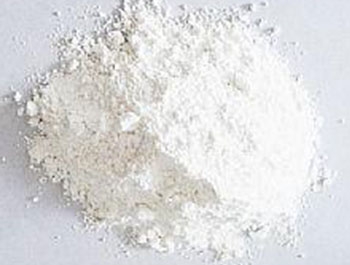Contact person: Mr. Chen
Mobile + 86-18104072230
Tel. + 86-417-5861677
Fax: 0417-5244777
website: en.yklhnh.com
Address: Yong'an Town, Dashiqiao City, Liaoning Province
The price of magnesia carbon brick
The performance of refractories refers to the properties of refractories when used at high temperatures. It includes refractoriness, softening temperature under load, linear change rate of reheating, thermal shock resistance, slag resistance, vacuum resistance, etc.
(1) Fire resistance
Refractoriness refers to the refractory's resistance to high temperature without melting under no load, which is used to characterize the performance of refractories resisting high temperature. Refractoriness is the basis for judging whether the material can be used as refractory. According to the international organization for standardization, inorganic nonmetallic materials with a fire resistance above 1500 ℃ are considered as refractories. The meaning of refractoriness is different from that of melting point, so refractoriness can not be used as the service temperature of refractories.
(2) Softening temperature under load
The load softening temperature is the temperature when the refractory reaches a specific compression deformation under the joint action of a certain heavy load and heat load. It is an important index of the high-temperature mechanical properties of the refractory. It represents the ability of the refractory to maintain stability under the joint action of heavy load and high-temperature heat load. The high temperature load deformation temperature is an important quality index of refractories, because it indicates the structural strength of the products under the conditions similar to their service conditions to a certain extent. The main factor determining the load softening temperature is the chemical and mineral composition of the products, which is also directly related to the production process of the products.

(3) Linear change rate of reburning (volume stability at high temperature)
The volume stability of refractory at high temperature refers to the performance that the volume or linearity of the product remains stable without deformation when it is used for a long time at high temperature. For sintered products, it is generally measured by the volume change rate or the linear change rate of the product under no heavy load. Reburning volume change is also known as residual volume deformation, and reburning line change is also called residual linear deformation. The re ignition deformation of refractory products is of great significance for judging the volume stability of products at high temperature, ensuring the stability of masonry, reducing the gaps of masonry, improving its sealing and corrosion resistance, and avoiding the damage of the whole masonry structure.
(4) Thermal shock resistance
Thermal shock resistance, also known as rapid cooling and heat resistance, represents the ability of refractory products to resist rapid temperature changes without damage.
In practical work, refractory materials often suffer from the situation of rapid temperature change. In a short period of time, the working temperature changes greatly, which is called thermal shock. Thermal shock can lead to cracking, spalling and collapse of refractories. Therefore, the thermal shock resistance of refractories must be examined when the working temperature changes sharply.
In order to improve the thermal shock resistance of materials and avoid cracks, it is necessary to improve the strength of materials, especially the tensile strength and shear strength, so as to improve the ability to resist the formation of cracks. At the same time, the elastic modulus and Poisson's ratio of materials should be reduced to reduce the possible thermal stress.
(5) Slag resistance
Slag resistance refers to the ability of refractory to resist the erosion and erosion of slag at high temperature. In a broad sense, the concept of slag refers to the metallurgical slag, fuel ash, fly ash, various materials and gaseous substances at the junction with refractory materials at high temperature.
(6) Vacuum resistance
Generally, the vapor pressure of refractories is very low at room temperature, which can be considered as extremely stable and non-volatile. However, when working under high temperature and pressure reduction, its volatility will become a problem that can not be ignored, which will cause loss and accelerate its damage due to its volatilization reduction. Under this condition, vacuum resistance becomes one of the important characteristics of refractories.